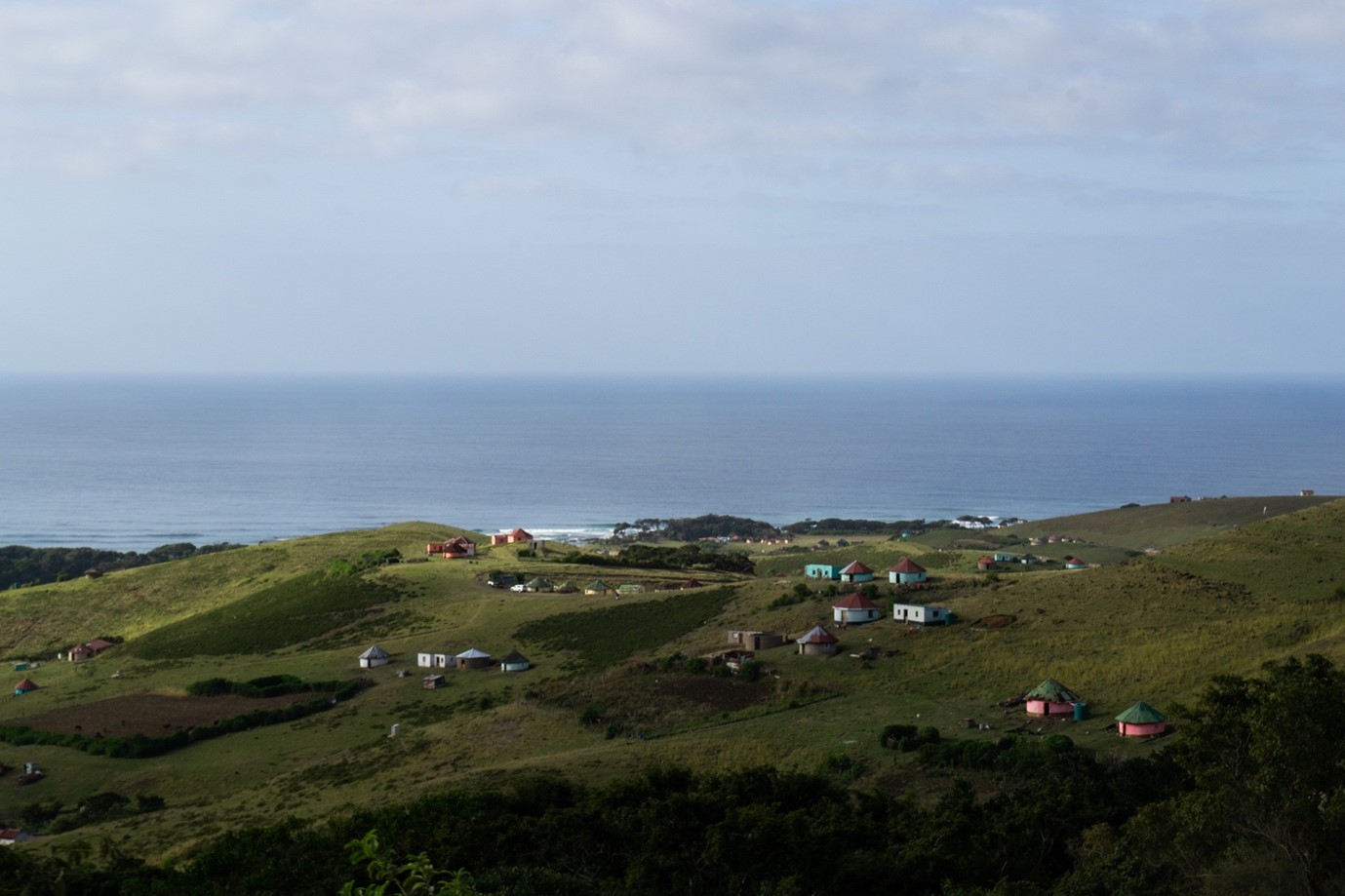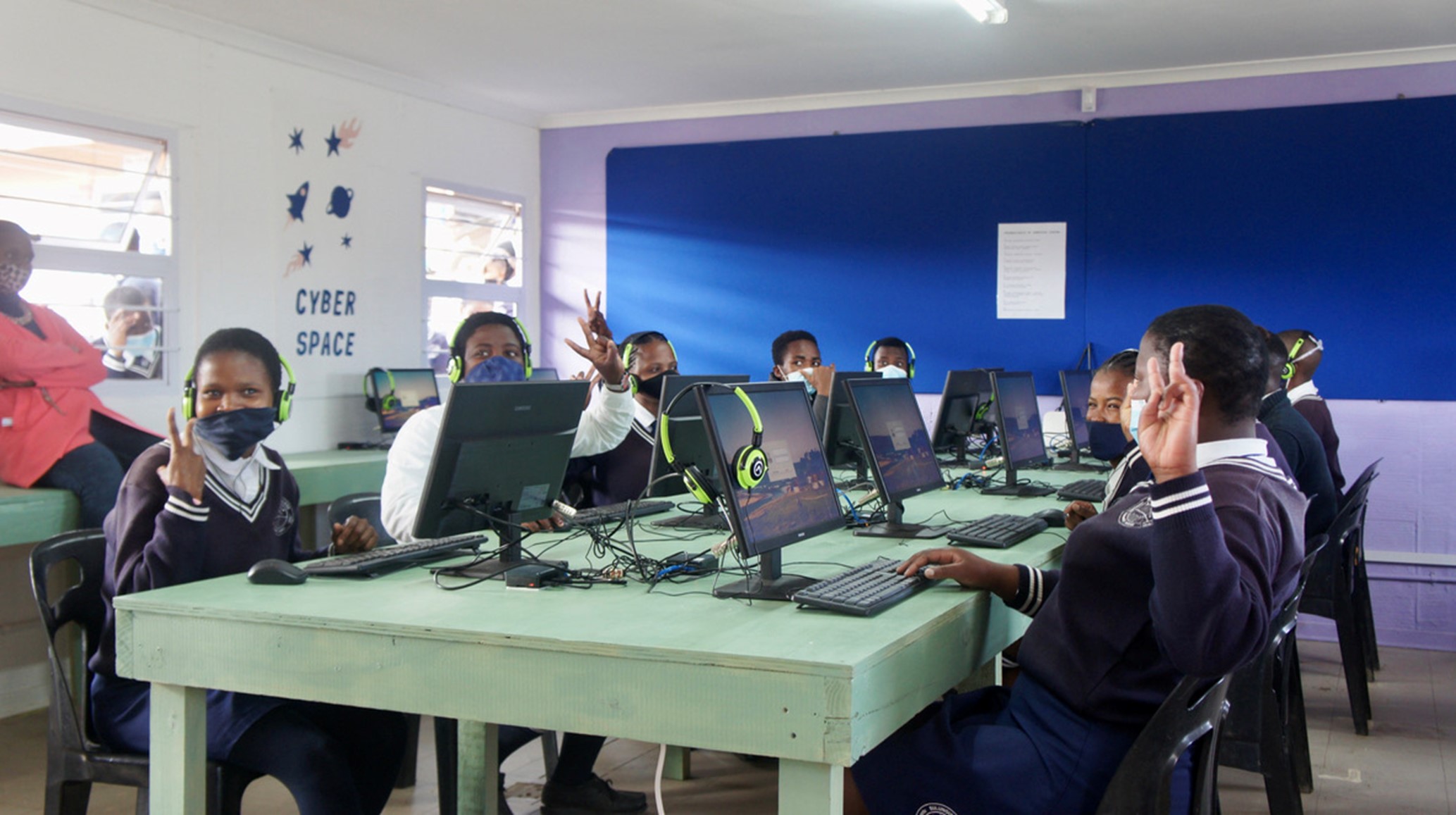Op-Ed
·Closing the Digital Gap Using Open Source Technologies: Lessons Learned Building a Low Cost Tech Centre in Rural Eastern Cape
In 2005, a United Nations backed initiative aimed to change the world through technology. By endeavouring to create a R1,500 computer for developing countries, with limited electricity and internet connection, One Laptop per Child (OLPC) set out to bring world class education to the world’s poorest areas. The project was a spectacular failure. The laptop cost more than R3,000, the software was buggy and the clunky machine often broke down - with little technical support to fix it. Today, the OLPC remains a key case study for why technology alone is not adequate to solve difficult development challenges.
Despite this, OLPCs vision is not necessarily wrong. The deep rural Eastern Cape, where the Bulungula Incubator is based, encompasses some of the most acute development challenges South Africa faces. Here, there is no electricity, limited infrastructure and treacherous dirt roads. Educational and employment outcomes amplify the consequences of poor service delivery. Youth unemployment is above 90 percent and barely five percent of adults finish high school. It is not likely that the youth in the villages surrounding Bulungula will have access to the same educational facilities, teachers, resources or tools that urban areas have anytime soon.
For instance, one of the programmes run at the Bulungula Incubator is a Job Skills and Entrepreneurship Programme. The programme is aimed at unemployed youth and hopes to equip them with the skills needed to secure employment. But, the biggest constraint is that the material and courses delivered are limited to the skills available on hand or from an external facilitator who would have to travel to Bulungula – generally a costly, long journey.

Imagine instead, if this was no longer a limitation? If the youth could learn about data capturing, data science or social entrepreneurship from industry professionals? Imagine if they could watch YouTube videos about the latest permaculture techniques or learn how to build furniture for homes in the area? Imagine if they could apply for NSFAS funding, technikons, universities or online diplomas without having to travel hours to the nearest city?
In such a context, technology really does hold the potential to bring a world of knowledge and opportunities to the youth at a fraction of the cost. With the failures of OLPC consistently at the back of our minds, we set out to build a low-cost, sustainable tech centre in Bulungula.
The Technology
When setting out on this mission, there were a myriad of factors to consider. Without electricity how would we run the centre? Should we use PCs, laptops or tablets? How do we work around high data costs? What software is most appropriate? How do we maintain and troubleshoot the centre with very few people in the community ever having used a computer before? How do we ensure that the technology does not go into a dusty cupboard once we leave? Luckily, it has been 15 years since OLPC built their computer and a lot has changed since then.
Given the electricity and budget constraints, the devices that would be used in the centre was a key consideration. We looked into using PCs, laptops, tablets and more. In the end, we chose the Raspberry Pi. It ticked all the boxes: it is energy-efficient, using far less power than other computers and it is substantially cheaper than even the most affordable PCs, costing just R1,000. Despite its price, it contains enough memory and computational power to ensure a complete desktop experience.
Once we had settled on using Raspberry Pi, we needed to determine how they would be configured and connected to enable the networking functionality expected from a computer lab (user logins, personal files etc.). This is where the open-source community around the Raspberry Pi’s came to the fore. The Raspberry Pi Foundation has developed, and continues to support, a tool called PiServer which converted our networking problem into a ‘plug and play’ exercise. We simply had to install the software onto a central PC and connect the Raspberry Pi’s on a local network. The Raspberry Pi desktop interface is based on Linux and is very intuitive to use compared to other operating systems - a key consideration for a community where most residents have never used a computer before.
Due to the exorbitant data prices in South Africa, we had to consider a way to facilitate the sharing of learning materials to the students without burdening the centre with the cost of downloading these materials from the internet. Once again, open-source software was the solution - we decided to use Kolibri, a free offline digital-learning platform developed by the Learning Equality Foundation. To reduce our reliance on high-speed internet we can put learning material onto a flash drive and physically transport it to the learning centre. Kolibri makes it easy to upload learning material from a flash drive to the tech-centre. Once the learning material is on the central PC, the students can easily access the material from any of the connected Raspberry Pi’s. Kolibri also makes it possible for teachers to set up digital quizzes, giving the students a fully-fledged digital learning experience (think an offline Coursera or EdX).
A final consideration was how to ensure the sustainability of the lab after we leave. It is not uncommon for a project like this to end in the devices being put away into a cupboard, never to be used again. In order to mitigate this, we started by developing a Guide for the centre which outlines how to set up the centre from scratch, how to facilitate the day-to-day operations of the centre, and how to troubleshoot issues that might arise. To accompany the Guide, we employed and trained (using the Guide) two passionate young individuals from the community as part-time employees to run the centre. However, there are software-related issues that are outside of the scope of the Guide and the expertise of the centre administrators. Thus, we enabled the ability to remotely access the central PC allowing us to assist with the software-side of the centre from wherever we are.
Where to From Here?
As learners entered the Bulungula Tech Centre for the first time the excitement was palpable. It would be the first time most of them have used a computer in their lives. Once the learners were orientated and on-boarded, the fun began. In the two months since, the Bulungula Tech Centre has been used to help matrics apply to Universities & Technikons. It has been used by youth in the Job Skills and Entrepreneurship Programme to complete financial literacy courses. Grade 10, 11 and 12 learners have been using Khan Academy, YouTube and other online resources to supplement their learning in class. And, over 120 people have become familiar with the PCs and are on their way to becoming computer literate.

There is still a long way to go and it is almost certain that there will be many kinks to iron out and speed bumps on the road ahead. In the months to come, it is envisioned that the centre will partner with different organisations to deliver targeted content, that coding classes will be offered to young learners during school holidays and CV building workshops for the entire community.
At the end of the day, technology is not going to be a silver bullet towards addressing the difficult development challenges that rural areas face. Alone, it will not revolutionise rural South Africa and lift its residents out of poverty. But, technology has come a long way in recent years. With new open-source software, cheaper hardware and a tonne of free content online; it is easier than ever to get information into people’s hands. Combining this with appropriate facilitation, content, and partnerships; technology can help open new opportunities for rural communities. We hope to continue to document the journey of the Bulungula Tech Centre and how to replicate its successes in other communities in our country.
